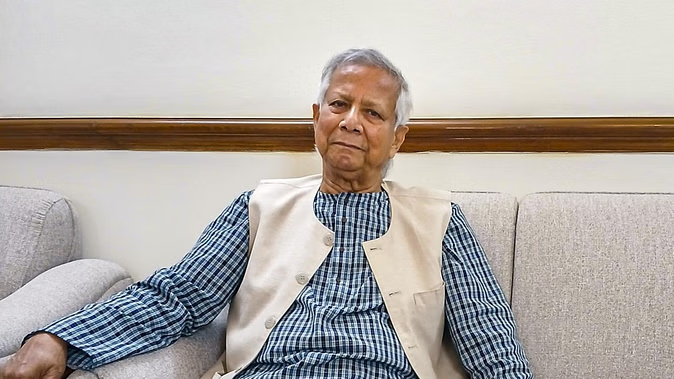Muhammad Yunus May Step Down as Bangladesh’s Interim Chief: Military Influence Raises Questions
Dhaka – Speculation is intensifying over the potential resignation of Professor Muhammad Yunus, the current head of Bangladesh’s interim government. Political analysts and local media are pointing toward mounting pressure from the military and an increasingly unstable political environment as key factors behind his possible decision to step down.
The uncertainty around Yunus’ position comes amid growing unrest in Bangladesh, with the interim government still failing to present a clear roadmap for the upcoming parliamentary elections. This leadership vacuum has triggered widespread concern across political and civil circles.
Adding to the tension, Bangladesh’s Army Chief, General Waqar-uz-Zaman, has publicly urged the interim administration to ensure that national elections are conducted by December this year. According to sources, General Waqar has made it clear that only an elected government should be responsible for making long-term decisions regarding the country’s governance and development. His remarks have further deepened the speculation that the military is losing patience with the transitional administration.
‘Difficult to Function Without Political Unity’
The BBC Bangla service reported late Thursday night, quoting Enhid Islam, the head of the student-led National Citizen Party (NCP), that Professor Yunus is seriously contemplating resignation. Islam stated, “We have been hearing about Professor Yunus’ possible resignation since early morning. I went to meet him personally to clarify the situation. He admitted that he is indeed thinking about stepping down. He feels the political deadlock is preventing him from functioning effectively.”
According to Islam, Yunus conveyed that the lack of consensus among the country’s major political parties has rendered the interim government’s operations ineffective. “Until political parties reach some form of understanding, he doesn’t see a way forward,” Islam noted.
‘He May No Longer Have the Mandate to Lead’
The NCP convenor further elaborated that Yunus expressed deep concern about the prevailing political crisis and emphasized that he cannot lead a government that lacks the confidence and cooperation of key political players. He reportedly said, “In the current circumstances, it is not possible to run the country.”
The student leader, whose party had risen to prominence earlier this year with Yunus’ backing, stated that Yunus had urged them to stay firm and committed to the ideals of the mass uprising that had led to the interim government’s formation. Islam recalled telling Yunus that the political parties should come together in support of his leadership, but acknowledged that without unity and mutual trust, leadership becomes unsustainable.
“If They Want Me to Resign, Why Should I Stay?”
One of Yunus’ most telling remarks, according to Islam, was his rhetorical question: “If the political parties no longer want me to lead, then what purpose does my presence serve?” This statement underscores his sense of isolation and the dwindling political capital available to him at a time when national leadership is most needed.
Growing Rift Between the Interim Government and Military
In recent days, Yunus’ administration has encountered significant challenges—most notably, a widening rift with Bangladesh’s powerful military. Tensions have reportedly escalated as the army, which had played a crucial role in the student-led uprising last year, appears to be distancing itself from the interim leadership.
The military’s neutrality during last year’s massive protests was pivotal. Despite orders to crack down on demonstrators, the army refused to act, a move that eventually led to the resignation of then-Prime Minister Sheikh Hasina and enabled Yunus’ rise to power. At the time, the military even provided logistical support, including air transport for Hasina’s safe departure to India.
However, that once-cooperative relationship is now under strain. Analysts believe that the army is increasingly frustrated by the interim government’s inability to stabilize the political environment or create a feasible plan for the democratic transition.
A Fragile Mandate and an Uncertain Future
The shifting dynamics have left the Yunus-led government vulnerable on multiple fronts. With political parties unwilling to cooperate and the military signaling disapproval, Yunus’ position as Chief Advisor has become precarious.
His potential resignation, if confirmed, would mark a critical turning point for Bangladesh’s fragile interim setup. It would also throw the upcoming parliamentary elections into further uncertainty, raising serious questions about who will guide the country through this critical transition period.
The coming days are expected to be crucial, as political leaders, civil society, and international observers await formal statements from Yunus and the military. Whether Professor Yunus stays or goes, one thing is clear: Bangladesh stands at a pivotal moment in its democratic journey.
